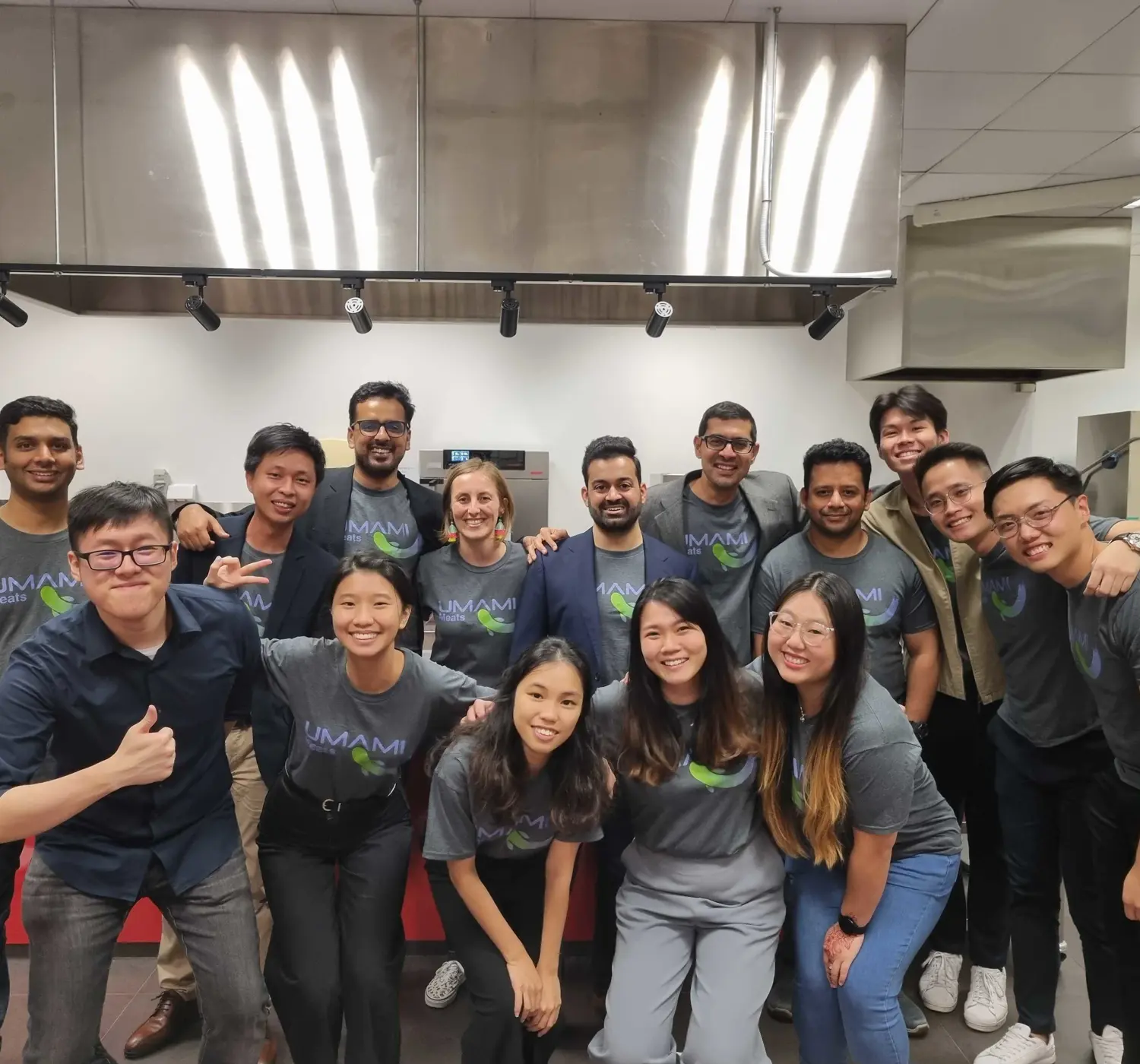
Singaporean-headquartered cellular agriculture start-up Umami Bioworks is on a mission to cultivate the future of sustainable seafood by crafting delicious, nutritious, affordable cultivated fish that is better for our health, our oceans, and our future. The company recently joined the Planet B.io community as member. To learn more about the company and its vision, we sat down with Mihir Pershad, the Founder and CEO of Umami Bioworks.

“Umami Bioworks is a cultivated seafood company, but rather than producing fish directly, we focus on developing scalable production systems and plug-and-play manufacturing solutions,” Mihir explains. “By enabling traditional food manufacturers to adopt our technology, we aim to facilitate the rapid global adoption of cultivated fish products. This collaborative approach allows for greater global accessibility for consumers and accelerates the transition towards a healthier and more sustainable seafood industry.”
The driving force behind Umami Bioworks is the realization of the vulnerabilities in our current seafood production systems. “With aquaculture responsible for all the significant growth in seafood production over the past 50 years, there is a growing need to address the inherent risks associated with these systems. Disease outbreaks and environmental factors can lead to catastrophic crashes in fish populations, highlighting the urgent need for alternative solutions. My background at a venture studio where I built experience in growing several companies in aquaculture disease management led me to explore the potential of cultivated seafood as a secure and sustainable alternative,” Mihir continues.
By collaborating with traditional food manufacturers Umami Bioworks is dedicated to developing a range of cultivated seafood products. “In the early stages, Umami Bioworks acts as a technology integrator and enabler, working closely with our partners to co-create product applications that showcase the potential of cultivated fish. By focusing on endangered species that are less suitable for commercial farming, such as eel, tuna, grouper, and snapper, we aim to offer unique and appealing products, and demonstrate the potential of our scalable production system,” Mihir explains. “For example, we are currently developing a whitefish whole fillet suitable for the European and US markets from grouper, where plate fish consumption is prevalent. By aligning product development with market demand, we ensure our offerings resonate with consumers.”
A Unique Approach
An essential aspect of Umami Bioworks' innovation lies in its approach to media development. The company recognized the need to reduce the cost of media used to cultivate fish cells. “Traditionally, foetal bovine serum (FBS) has been a key component in cell cultures. However, FBS is limited in availability and sourced from slaughterhouses, making it unsuitable for a sustainable, animal-free, food system. We successfully developed an alternative to FBS and are collaborating with a Japanese manufacturing company to produce fish-specific growth factors,” says Mihir. “These growth factors enhance cell growth and reduce the reliance on FBS. In conjunction with our work to develop plant and algae sources for homologs of the proteins found in FBS, we have achieved a sustainable and cost-effective alternative to animal serum.”
When it comes to scalability, Umami Bioworks adopts a unique perspective. “We emphasize scaling out and intensifying processes rather than scaling up. This involves making smaller vessels more efficient through process development innovations, such as shifting from batch to continuous processing, employing perfusion, recirculating media, and optimizing wastewater management. We believe that these process improvements, along with cell lines capable of long-term stability and rapid differentiation, can achieve cost efficiency and scale,” Mihir comments.
Benefits of Being Part of Planet B.io's Community
Umami Bioworks recently became a member of the Planet B.io community in the Netherlands. When asked why they chose Planet B.io, Mihir said; “We see being in this ecosystem as advantageous for building our scale-up engineering and automation team in Delft. Being surrounded by a community of like-minded individuals and organizations working on similar challenges provides opportunities for collaboration, knowledge sharing, and finding suitable partnerships. Additionally, the innovation ecosystem in the region, with a focus on green processes and automation, aligns with Umami Bioworks' strategy and offers potential synergies.”
Vision for the Future
Looking ahead, Umami Bioworks envisions itself as the technology layer that empowers a range of brands globally, similar to Intel or Gore-Tex. “In five years, we aspire to have a presence on three continents—North America, Europe, and Asia—with brands in the market powered by our technology. We then aim to help launch and scale multiple facilities each year to bring cultivated products to consumers. Eventually, our goal is to have a plug-and-play solution available that can be easily deployed by any food company interested in creating cultivated products, regardless of their in-house expertise,” concludes Mihir.
Want to learn more about Umami Bioworks? Check out their website
